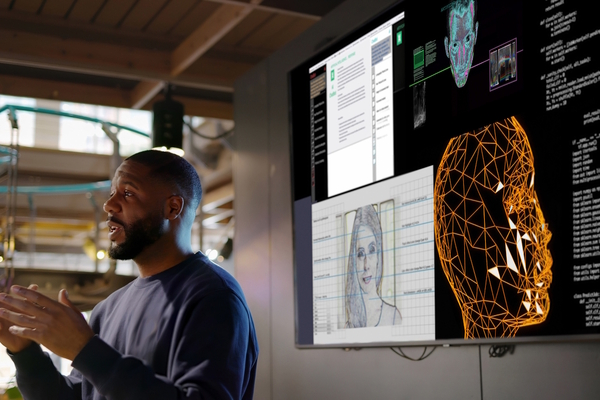Achieving transcendent leadership

Emotional resilience and conscious expert and author Dr Lisa Turner explains how to elevate workplace culture through transcendent leadership
Traditional leadership models are being challenged like never before. With growing complexity, social and environmental issues, and employees seeking more meaning from their work, the need for leadership evolution is clear. Leaders must rise beyond short-term wins and self-interest, becoming transcendent leaders who drive both organisational success and long-term positive impact.
Leadership exists on a spectrum, from self-serving to transcendent. Understanding these different levels of leadership and how they shape workplace culture is critical to elevating organisational performance and purpose.
The evolution of leadership: from self-serving to transcendent
1. The self-serving leader: focused on personal gain. The self-serving leader prioritises their personal ambition, recognition, or financial gain over their team or organisation. These leaders view people as tools to further their agenda, creating toxic cultures, disengaged employees, and low morale. No one advocates this style but it exists nonetheless.
Workplace impact: High turnover, low productivity, and a lack of trust.
2. The team-focused leader: leading for the immediate team. The team-focused leader shifts their focus to the success and well-being of their team. While this is a step forward, it can result in siloed teams that lack broader organisational collaboration.
Workplace impact: Teams perform well, but there may be misalignment with the wider business goals.
3. The organisational leader: driving company-wide success. The organisational leader goes beyond their team to think strategically about the company’s goals. They focus on aligning departments, ensuring long-term sustainability and company-wide success.
Workplace impact: Cross-departmental cohesion, but may miss the wider ethical or societal impacts of their decisions.
4. The conscious leader: embracing ethics and long-term thinking. The conscious leader considers the organisation’s role in society and the planet. They integrate values like sustainability, ethics, and social responsibility into their decision-making.
Workplace impact: Cultures become more inclusive, innovative, and purpose-driven, with a focus on ethical business practices.
5. Leading for global impact. The transcendent leader is driven by a sense of purpose that goes beyond profit. They think globally, aiming to create lasting, positive change for humanity and the planet.
Workplace impact: The organisation becomes a force for good, with a deeply motivated workforce connected to a broader mission of positive global change.
How to become a transcendent leader
A transcendent leader embodies the qualities of awareness, creativity, autonomy, a growth mindset and the ability to unite logic and intuition, living their life as a work of art.
1. Reflect on your purpose. Start by asking yourself: "What is my deeper purpose as a leader?" and "How does my leadership contribute to the well-being of others?" Transcendent leadership requires you to connect with a purpose beyond personal ambition or profit. Consider how your leadership can create a positive impact on your team, your organisation, and society as a whole.
2. Cultivate presence and flow. Practice being fully present in every moment. Whether you’re leading a meeting, making a decision, or connecting with an employee, focus on the task at hand without distractions. By embracing presence, you’ll begin to access flow states more regularly, allowing you to perform at your peak and inspire others to do the same.
3. Lead with compassion. Develop your emotional intelligence by regularly assessing how you manage your emotions and how well you empathise with others. Compassionate leadership builds trust, loyalty, and innovation. Consider how you can lead in a way that prioritises the well-being of everyone involved, from employees to the wider community.
4. Act with integrity. Align your actions with your core values, even when faced with difficult decisions. Being transparent and authentic in your leadership fosters trust and sets a powerful example for your team. Lead in a way that is consistent with your principles, knowing that doing so will inspire those around you to act with the same level of integrity.
5. Adopt systems thinking. Begin to see the interconnectedness of all things. As you make decisions, consider their ripple effects beyond your immediate organisation. Think about how your leadership choices impact society, the environment, and future generations. By adopting systems thinking, you’ll ensure that your leadership contributes to a more sustainable and equitable world.
6. Embrace adaptability. In a rapidly changing world, adaptability is key. Be open to new ideas, stay curious, and be willing to pivot when necessary. The ability to remain flexible in the face of uncertainty is a hallmark of transcendent leadership and ensures your organisation can thrive no matter what challenges arise.
7. Unite logic and intuition. As a transcendent leader, learn to integrate both logic and intuition. Use data and analytical thinking to inform your decisions, but don’t shy away from trusting your instincts. When combined, logic and intuition create decisions that are not only factually sound but also deeply aligned with the emotional and ethical dimensions of leadership.
The future belongs to transcendent leaders
In a world where complexity and global challenges are growing, transcendent leadership is the way forward. Leaders who rise above personal ambition and think globally, ethically, and sustainably will create businesses that thrive and contribute to a better future for all.
Are you ready to lead with purpose and become a transcendent leader?
Dr Lisa Turner is a leading voice in the spiritual community, the bestselling author of CET Yourself Free and a passionate advocate for humanity’s conscious evolution. In her new book, Our Conscious Tipping Point, Lisa passionately encourages changemakers and conscious leaders to master the art of turning chaos into opportunity, not only for personal transformation but to galvanise real global change
Main image courtesy of iStockPhoto.com and Palto

Business Reporter Team
Most Viewed
Winston House, 3rd Floor, Units 306-309, 2-4 Dollis Park, London, N3 1HF
23-29 Hendon Lane, London, N3 1RT
020 8349 4363
© 2025, Lyonsdown Limited. Business Reporter® is a registered trademark of Lyonsdown Ltd. VAT registration number: 830519543





